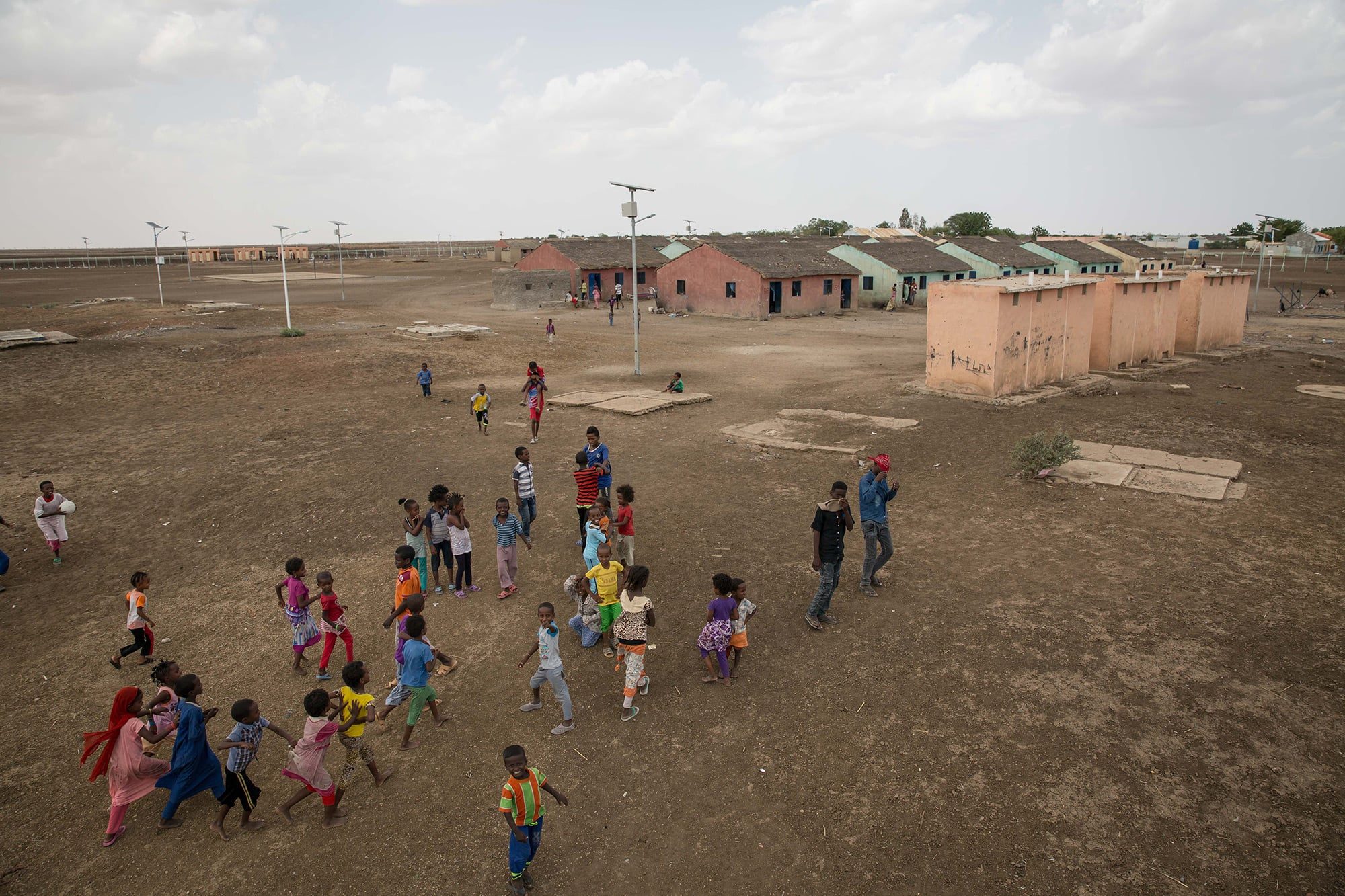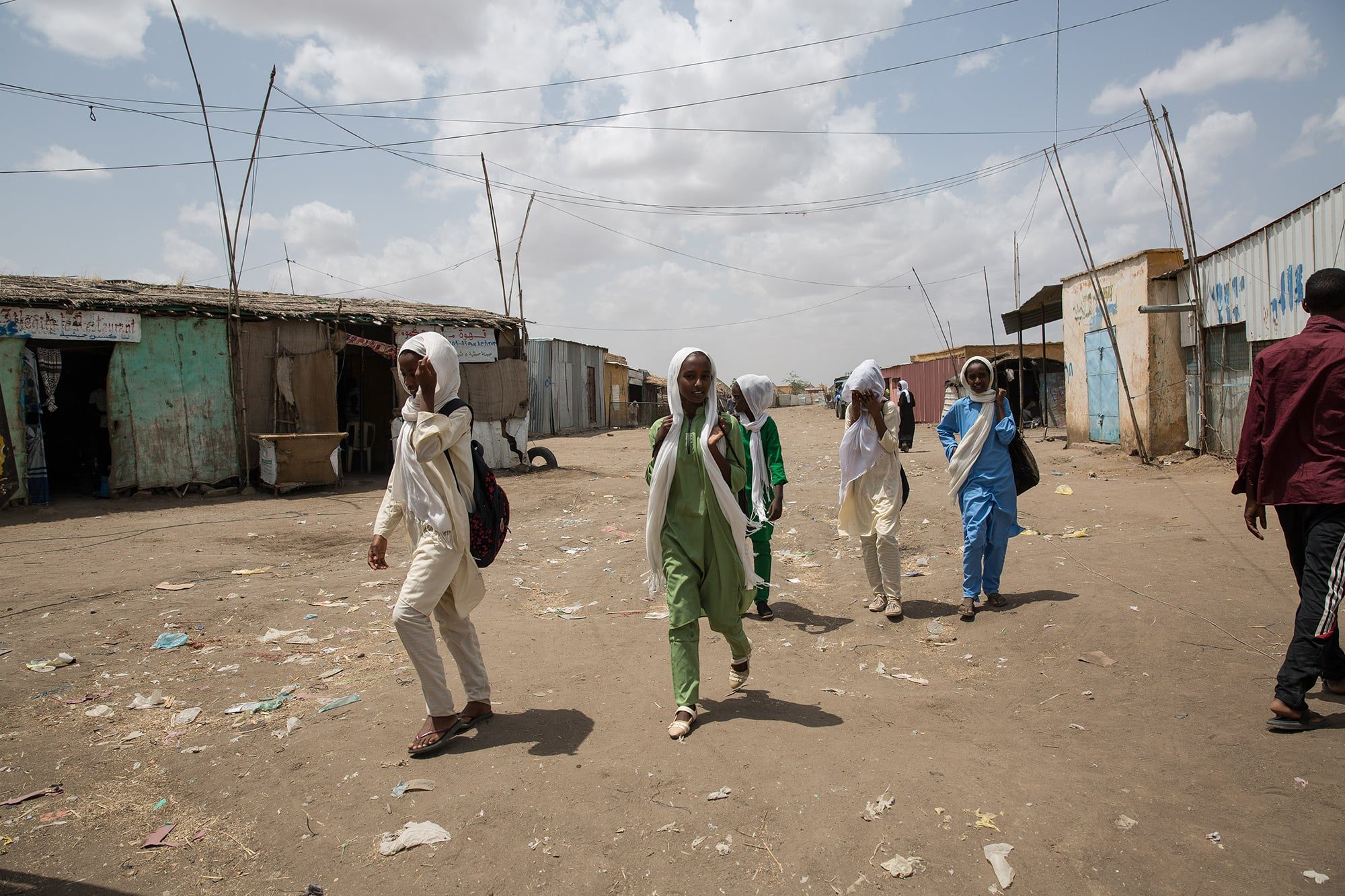An internal UN refugee agency investigation into allegations of corruption in its Sudan resettlement operations has determined that a staff member abused their power by soliciting bribes from refugees.
In an email, UNHCR spokesperson Cécile Pouilly told Journalists for Transparency that the probe, which began early last year, has now concluded and that the staff member in question has been on administrative leave without pay since 15 March.
“The case has been referred to the Division of Human Resources in accordance with the process for disciplinary action,” Pouilly noted. “We expect the disciplinary process to be finalised soon.”
Witnesses who gave testimony during the investigation told Journalists for Transparency that they believe UNHCR’s conclusion downplays the pervasiveness of corruption within the Khartoum office. All of the witnesses asked to remain anonymous for fear of retaliation.
“[There is] not just one criminal. This type of crime does not work with one person,” said one refugee. “There is so much going on, from [the] reception to [the] senior protection officer.”

A wider problem?
Two UN officials who have worked in Sudan, and asked not to be named, told Journalists for Transparency that rumours about money changing hands between refugees and staff in UNHCR’s Sudan operations have been around for decades.
One of the officials said it was hard to see how the internal investigation could find just one person guilty, “as opposed to identifying that there are weaknesses in the system”.
Pouilly said UNHCR has been implementing new measures to strengthen the oversight of their resettlement programme, in parallel with the investigation.
“This includes improving the registration and data management processes, particularly through the systematic use of our biometric management registration system,” she said. “Anti-fraud focal points have been appointed in different offices and specifically trained to address fraud in protection processes.”
In mid-May 2018, following 10 months of interviews with refugees and former UN staff members, Journalists for Transparency, in partnership with The New Humanitarian, published an exclusive report detailing allegations of widespread corruption and exploitation of refugees by UNHCR staff and people who claimed to be brokers for them in Khartoum.
Among other alleged abuses, refugees and former staff members said some staff made refugees pay bribes of tens of thousands of dollars to be resettled to a Western country, a process that is supposed to be free and based on need.
Two days after publication, UNHCR released a statement saying the agency was suspending refugee resettlement from Sudan in connection with ongoing investigations, while deploying an anti-fraud team.
“At present, we are still dealing with allegations, based on reports that have come from refugees,” UNHCR Representative for Sudan Noriko Yoshida said at the time.
“Nonetheless, these are worrying [allegations] and the integrity of the Sudan resettlement programme has to be assured beyond any doubt,” she said. “Should wrongdoing be confirmed, those responsible can expect the consequences to be severe.”
Resettlement was suspended 15 months ago, in May 2018, and no date has yet been given for its resumption.
Throughout this period, refugees in Sudan have argued that suspending resettlement is not the answer, saying it punishes the refugees instead of improving the system they allege exploited them.
“They didn’t look into the life of refugees [who] need urgent help and kept [the] suspension of resettlement. When the suspension is continuing, refugees are affected, not the corrupt [people],” one refugee, who gave testimony during the investigation, said this week. “I think it is part of corruption, punishing refugees in such ways.”

Retaliation fears
Refugees allege retaliation against witnesses began in the days after UNHCR publicly announced the internal investigation, with several who had observed wrongdoing telling Journalists for Transparency they were phoned or called in for interviews by UNHCR staff and the Sudanese government’s Commission for Refugees, and warned not to testify.
Two refugees said they were told their years-old cases with the UN had been closed and they no longer had any chance of being resettled to a safer country.
Several witnesses, who spoke to UNHCR’s Inspector General’s Office (IGO) as part of the investigation, said subsequent pleas for protection to UNHCR were ignored.
“After taking the information IGO want[ed] from us, they didn’t help us in any way. We don’t feel free now because we have exposed many crimes,” one refugee witness told Journalists for Transparency. “We made a concerted effort to expose this crime. Our lives are in danger because of our testimony. I ask the concerned department to take immediate action.”
Journalists for Transparency understands at least one refugee witness was relocated to another country.
Refugees interviewed by Journalists for Transparency between 2017 and 2018 repeatedly said they needed to go public because they alleged UNHCR management was ignoring what was happening, despite it being close to common knowledge.
Though UNHCR says the investigation has concluded, refugee witnesses say they have not been informed of this directly.
In March, state media reported that the Sudanese government’s refugee commissioner, Hamad al-Jazouli, had been “relieved” of his position, following months of rumours he was being investigated for corruption.
It is unclear whether any investigation into al-Jazouli was related to the internal UNHCR probe.
A problem beyond Sudan
Allegations of corruption by UNHCR staff and contractors are common in many East African countries, including Kenya, Uganda, and Ethiopia.
Dozens of refugees interviewed by Journalists for Transparency in those countries said when they witnessed corruption they were frightened to speak out, for fear of retaliation. Having fled their countries, they are heavily reliant on UNHCR for their basic needs and future opportunities.
UNHCR has previously denied that widespread corruption is a problem, though it says the agency is “not immune to risk or failure on the part of individuals”, which is why they have a “solid safeguarding structure”.
The number of resettlement places available for refugees greatly outstrips demand, due to a lack of countries offering spaces. Of the estimated 1.2 million refugees who required resettlement globally in 2018, only 55,692 were actually moved – less than five percent, according to UNHCR figures.
Corruption among staff of the UNHCR and the Sudanese government’s Commission for Refugees, which it partners with, is one of the reasons refugees told Journalists for Transparency they preferred to head to neighbouring Libya, before trying to cross the Mediterranean to Europe.
“The problem is at the beginning,” said one Eritrean, who spent years between smugglers and detention centres in Libya, after passing through Sudan. “I’m sure if UNHCR in Ethiopia and Sudan worked correctly, no one would want to come to Libya.”





